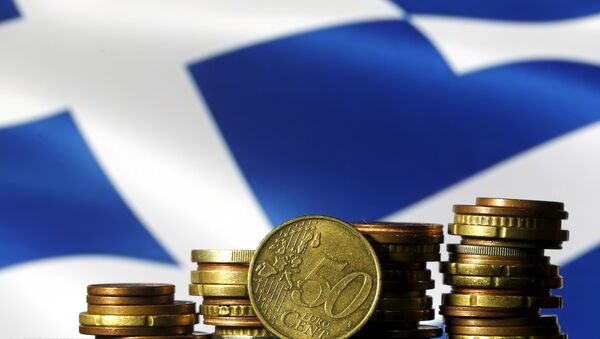Germany has been among the toughest on Greece, demanding the Greek Government initiate a huge swathe of austerity measures — including public spending cuts, increasing taxes and tax collection and major changes to state pensions.
"A so-called haircut is not legal, where you give up some debt… but under the term debt relief you can also talk about extending maturities, having a period without making interest payments or redemption payments and we can talk about that, we have always said that," Spahn told Deutschlandfunk.
"The whole German government […] acknowledges that the Greek government has shifted a good deal. There is a constructive attitude, a willingness to [undertake] reforms, there is a recognition that Greece must change if it wants to stay in the eurozone," he said.
"#Greece has made already very good progress: I am confident we can have a very positive #Eurogroup meeting today" — @pierremoscovici pic.twitter.com/oZQeWNRy3j
— European Commission (@EU_Commission) 20 February 2017
The stance is in marked contrast to the position Germany found itself in following the Second World War. The London Agreement on German External Debts was a debt relief treaty between the Federal Republic of Germany and its creditor nations, signed in 1953. At the time, Germany had a broken economy and still owed its foreign creditors money from after World War I, under the Treaty of Versailles.
At the end of the First World War, Germany was forced to pay the victors huge amounts of money by way of repatriation. Being a broken nation at the time, it found it increasingly difficult to pay off its debts and this was exacerbated by the Wall Street crash of 1929, which plunged the world into recession — not unlike the crash of 2007-8 which triggered the current Greek woes.
Haircut
Following World War II, the London Agreement rolled-up the Versailles debt with its post-WWII debt into one consolidated package, but gave Germany 50 percent debt relief, allowing it to pay back the remainder over 30 years.
How does the IMF assess whether a country’s debt level is unsustainable? IMF staff explain in a blog https://t.co/2rdyrJcGuA
— IMF (@IMFNews) 27 February 2017
Since this package allowed Germany to repay its debts only when it was in trade surplus, it meant it had no payments to make until its economy grew and it was able to make the repayments. Thus it was also incentivized Germany to boost its own economy and its creditors to import German goods. The Germany economy grew strongly under these terms over the coming decades. It made its final repayments in 1990 and 2010.
Greek Prime Minister Alexis Tsipras, July 2015, called on his creditors to let Greece have the same treatments as Germany did.
"The strongest moment of solidarity in Modern European history was in 1953 when your country [Germany] came out of two World Wars and Europe showed at the London Conference in 1953 the greatest possible solidarity. Fifty percent of German debt was written off at the time. And that was the biggest extension of solidarity in modern European history," Tsipras told members of the European Parliament.




